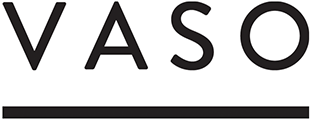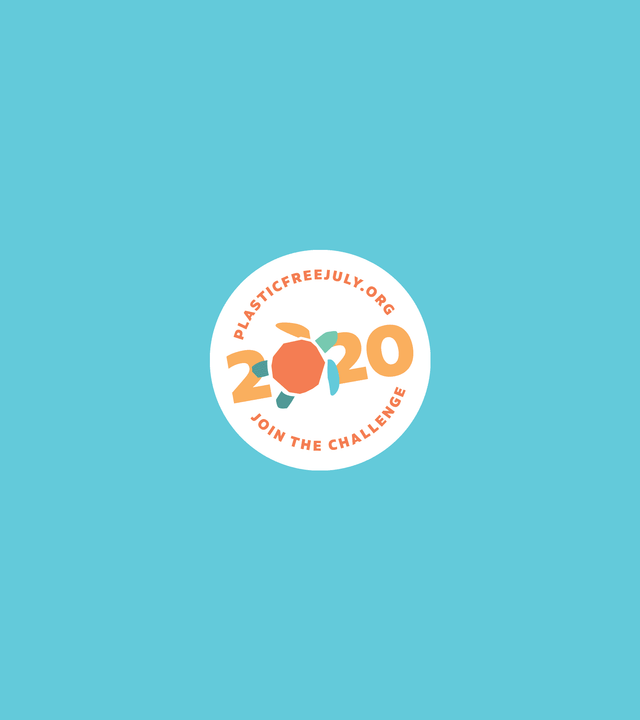Plastic Free July 2020
What Is Plastic Free July? - Everything You Need to Know
Being eco-friendly and kind to our planet is at the core of what we do at VASO, it’s our mission to help dramatically reduce plastic waste by producing reusable, sustainable and recyclable glass straws for all to enjoy. That’s why we’re supporting Plastic Free July.
Plastic Free July is a movement started by the Plastic Free Foundation in 2011 that looks to urge millions of people around the world to do their bit to help put an end to plastic pollution.
Over the last nine years over 250 million people in 177 have made small but important changes in their daily lives in an attempt to be part of the solution so we can have cleaner streets, oceans, and beautiful communities.
What Should You Aim to Achieve During Plastic Free July?
There are no strict goals every participant of Plastic Free July are expected to meet, however on average those who do take part each year manage to reduce their household waste and recycling by 23kg per person per year and contribute to saving an incredible 825,000,000 kg of plastic waste each year.
90% of those that participated in Plastic Free July have reported that they have completely changed their way of life following in order to use little to no single-use plastics. It’s not necessarily about becoming completely militant, but doing your bit to cut down and spread awareness of the dangers of using single-use plastic.
Why is Plastic Free July so Important?
Unfortunately the affordability and versatility of plastic has meant that most manufacturers have looked to it to make a huge number of cheap single-use items throughout the last century, leading to a huge boom in the amount of waste we produce in turn.
Products made from single-use plastic such as straws, bottles, food packaging and carrier bags are notoriously difficult to recycle due to the fact that most recycling centres around the world refuse to accept them at all due to the risk they pose to their intricate machinery.
Because of this these items are sent to landfill sites before eventually being dumped in the ocean where they cause a huge amount of damage to our marine ecosystem. Most single-use plastics are not biodegradable, instead they break down into smaller pieces known as microplastics which are incredibly harmful to wildlife.
Depressing figures show that one in three sea turtles, and around 90% of all seabirds have eaten some form of plastic. Because they’re unable to digest plastic their stomachs become full meaning there’s no room for real food. As a result they die of malnutrition.
Each year it’s estimated that 100,000 animals in the sea are killed by plastic, we need to reverse this statistic if we have any hope of protecting the future of our ecosystem.
What Can You Do Right Now to Reduce Your Plastic Consumption?
There are a number of really easy small day-to-day changes you can make which will dramatically, if not completely cut out your consumption of single-use plastics. Our number one tip would be to use reusable products that are not made from plastic at all.
Coffee cups, water bottles, shopping bags and straws (also known as the ‘big four’) are all prime examples of items that are made from single-use plastic such as Polypropylene that have eco-friendly alternatives which are cost-effective, safe to use and so much better for the environment.
If you’re going shopping, take a reusable bag made from fabric such as canvas or cotton, natural fibres such as jute or even hemp. They’ll last significantly longer and the number of plastic bags going to landfill is dramatically reduced. You’ll also save money in the long run.
If you’re grabbing a coffee or want a refillable drink then perhaps consider using a reusable cup made from bamboo, ceramic, stainless steel or glass rather than the plastic takeaway cup a barista would normally give you. It might seem less convenient to get a takeaway cup, however they’re not recyclable and the ‘compostable’ cups are often not composted at all.
When eating fast-food or drinking at your favourite bar you’re likely to be given a plastic straw with your drink, refuse the straw and use your own! You could choose to buy a stainless steel or bamboo straw, but do you really want the hassle of drinking out of something more than once when you’re not 100% certain it’s thoroughly clean? Go glass instead!
VASO’s premium glass straws are the first choice for those of you who are eco-conscious and want to enjoy your drink in style. Their popular range of straws are 100% reusable, sustainable and recyclable and are completely free of toxins, mineral oils and industrial chemicals such as BPA.
What’s more they can be stored safely in a stylish bamboo case and they’re completely dishwasher friendly, meaning you get them squeaky clean after each use, something incredibly important in this day and age as we grapple with the COVID-19 pandemic.
Finally, when buying food be mindful to try and purchase products that aren’t packaged in an excessive amount of plastic when they don’t need to be, consider shopping at local farm shops or greengrocers when possible where plastic packaging is much less common.
In a day and age in which we have to be mindful of everything we use on a daily basis there’s never been a better time to champion reusable products such as glass straws, reusable shopping bags and cups. Whilst we’re keen that everyone participates in Plastic Free July, why not consider making it a plastic free lifestyle starting with us here at VASO?
Plastic Free July - the Low-Down on Going Plastic Free
Where Did Plastic Free July Begin?
Plastic Free July was started by Rebecca Prince-Ruiz in Perth, Australia back in 2011. Initially only 40 households took part which has since grown to 250 million people across 177 countries today.
How Do I Go Plastic Free in July?
In order to go plastic free this July you should avoid using or buying products that are made from single-use plastics, in particular the ‘big four’ which are plastic bottles, disposable coffee cups, plastic bags and straws.
How Much Plastic Waste Does Plastic Free July Cut Down?
It’s said that those participating in Plastic Free July contribute to a saving 825,000,000 kg (825 million kg) of plastic waste every single year.
Why Should You Go Plastic Free?
Many common products you use day-to-day utilise single-use plastics. These plastics are not recyclable therefore they end up in landfill and eventually the sea where they pose a huge risk to our ecosystem and wildlife such as turtles, seabirds and fish.
Is Single-Use Plastic Being Banned in the UK?
Not all single-use plastic is being banned in the United Kingdom, however, from October 2020 plastic straws and plastic cotton-buds will be outlawed except for in a few exceptional circumstances.
How Much Plastic Is There in Our Oceans?
It’s estimated that around 8 million tons of plastic enters our oceans every single year with a harrowing total of 150 tons of plastic in circulation altogether.
Why Should We Use Reusable Straws?
We should use reusable straws because plastic straws cannot be recycled due to their small, flexible nature. Recycling centres refuse to take them as they can damage their machinery. Instead they’re taken to landfill before potentially ending up in our oceans.

